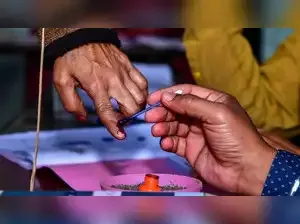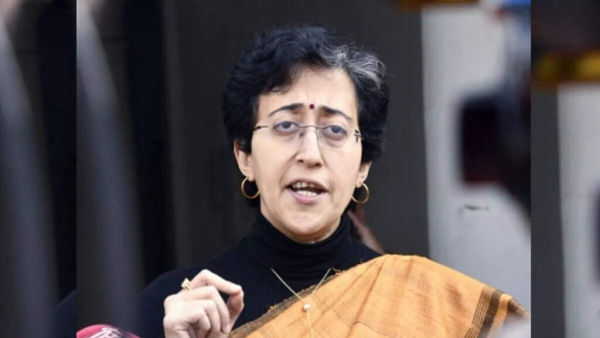Never mind the lingering association of Bihar in the national imagination with the Adventures of Paltu Ram. Some cliches about the state have been in the process of steady but sure palat. One indicator of this is the Election Commission's June 24 order for a Special Intensive Revision (SIR) in Bihar before the state goes to assembly elections in October-November. Changing times, changing number of registered voters, one would think.
Except, right on cue too, the usual suspects (read: the 'EVMs are faulty - if we don't win' folks) have smelt a chuha. This SIR-ji business, they say, is a cunning plan to disenfranchise economically and socially vulnerable communities. By which, one presumes, the critics somehow mean those who'd rather vote for them.
In one hop, skip and jump, the proposed SIR is also being said to 'resemble' the National Register of Citizens. In other words, enumeration - 'that too in Bihar!' - automatically means hera pheri. Or as conspiracy theorist CM Mamata Banerjee would probably call it, 'hanky-panky'.
Speaking of Bengal, there's a buzz on a Bihar-style SIR for that state, too. EC has reportedly identified an 'abnormal' 66% growth in the number of voters in West Bengal since the last time such a head count was taken 22 years ago. A logical growth rate, according to EC officials, should have been 48-50%. So, do the 'unusual suspects' - BJP, the main opposition in Bengal - suspect 'Bangladeshis' being given manufactured voter IDs?
Or, as the ruling TMC may well be countering, have Biharis been brought in by the truckloads by 'that non-Bengali party' to cast their votes - never mind that a a sizeable population of emigres have been living in Bengal from the neighbouring state for decades? Whatever finally ends up being the conspiracy of the month, outside the immediate political pitch, Bihar is on the national stage for far more viksit reasons.
Dehri-born Akash Deep's fast-medium right arm has been grabbing headlines since his 10-wicket haul at Edgbaston against England last week. The fact that in his early days, he had to move to Durgapur in West Bengal, and then to Kolkata, to play competitive cricket -- Bihar Cricket Association was hobbled with disaffiliations and suspensions in the 2010s - ironically continued the old Bihar-Bengal discord that is rooted in misplaced, anachronistic Bengali bhadralok supremacy that looks down on the 'non-Bengali' in general, the 'babua,' in particular. This, even as metropolitan Bengal's unorganised sector continues to be economically lubricated by a large migrant workforce from across the state line.
Earlier, of course, there was 14-year-old Tajpur-born Vaibhav Sooryavanshi, whose left-handed batting did the talking, as he became the youngest player to score a century in the IPL for Rajasthan Royals in April. So, Bihar has been on the roll - beyond the electoral one - of late.
If the likes of artist-sculptor Subodh Gupta -- born in Khagaul, and graduated from Patna Arts and Craft College - has become every curator's hot ticket to the big gallery scene in Delhi and Mumbai, Indian politics' Dale Carnegie, Sasaram-born strategist Prashant Kishor, has been the must-have consultant for almost every party, from BJP and Congress, to JD(U), DMK and TMC. You could even say that he predates Elon Musk in leaving working for someone else's political party to form his own Jan Suraaj Party in 2022. Call it 'Bihar Party' to Musk's America Party.
If sattu is on its way to becoming the next quinoa, and Patna's roads are looking sturdier than Kolkata's doleful , it's only natural for the rest of India needing to look at the good old 'badlands of Bihar' in a new goodlands way. Which could also mean not automatically counting out every new headcount exercise as a grand Dilli sarkar conspiracy.
Except, right on cue too, the usual suspects (read: the 'EVMs are faulty - if we don't win' folks) have smelt a chuha. This SIR-ji business, they say, is a cunning plan to disenfranchise economically and socially vulnerable communities. By which, one presumes, the critics somehow mean those who'd rather vote for them.
In one hop, skip and jump, the proposed SIR is also being said to 'resemble' the National Register of Citizens. In other words, enumeration - 'that too in Bihar!' - automatically means hera pheri. Or as conspiracy theorist CM Mamata Banerjee would probably call it, 'hanky-panky'.
Speaking of Bengal, there's a buzz on a Bihar-style SIR for that state, too. EC has reportedly identified an 'abnormal' 66% growth in the number of voters in West Bengal since the last time such a head count was taken 22 years ago. A logical growth rate, according to EC officials, should have been 48-50%. So, do the 'unusual suspects' - BJP, the main opposition in Bengal - suspect 'Bangladeshis' being given manufactured voter IDs?
Or, as the ruling TMC may well be countering, have Biharis been brought in by the truckloads by 'that non-Bengali party' to cast their votes - never mind that a a sizeable population of emigres have been living in Bengal from the neighbouring state for decades? Whatever finally ends up being the conspiracy of the month, outside the immediate political pitch, Bihar is on the national stage for far more viksit reasons.
Dehri-born Akash Deep's fast-medium right arm has been grabbing headlines since his 10-wicket haul at Edgbaston against England last week. The fact that in his early days, he had to move to Durgapur in West Bengal, and then to Kolkata, to play competitive cricket -- Bihar Cricket Association was hobbled with disaffiliations and suspensions in the 2010s - ironically continued the old Bihar-Bengal discord that is rooted in misplaced, anachronistic Bengali bhadralok supremacy that looks down on the 'non-Bengali' in general, the 'babua,' in particular. This, even as metropolitan Bengal's unorganised sector continues to be economically lubricated by a large migrant workforce from across the state line.
Earlier, of course, there was 14-year-old Tajpur-born Vaibhav Sooryavanshi, whose left-handed batting did the talking, as he became the youngest player to score a century in the IPL for Rajasthan Royals in April. So, Bihar has been on the roll - beyond the electoral one - of late.
If the likes of artist-sculptor Subodh Gupta -- born in Khagaul, and graduated from Patna Arts and Craft College - has become every curator's hot ticket to the big gallery scene in Delhi and Mumbai, Indian politics' Dale Carnegie, Sasaram-born strategist Prashant Kishor, has been the must-have consultant for almost every party, from BJP and Congress, to JD(U), DMK and TMC. You could even say that he predates Elon Musk in leaving working for someone else's political party to form his own Jan Suraaj Party in 2022. Call it 'Bihar Party' to Musk's America Party.
If sattu is on its way to becoming the next quinoa, and Patna's roads are looking sturdier than Kolkata's doleful , it's only natural for the rest of India needing to look at the good old 'badlands of Bihar' in a new goodlands way. Which could also mean not automatically counting out every new headcount exercise as a grand Dilli sarkar conspiracy.








